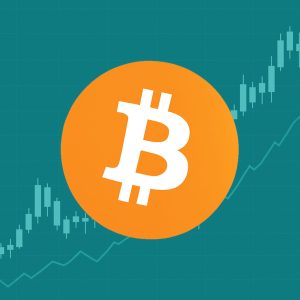Tokenization is rapidly emerging as one of the most transformative trends in global finance, with major financial and crypto industry leaders agreeing that it could fundamentally reshape how markets operate. By converting traditional or physical assets into digital tokens on a blockchain, tokenization has the potential to increase efficiency, transparency, and accessibility across nearly every corner of the financial system.
Recent high-level discussions among Wall Street executives and crypto innovators have underscored a clear consensus: tokenization isn’t just a passing trend—it’s a catalyst for a new financial era. The technology enables fractional ownership of assets, allowing a broader range of investors to participate in markets that were once reserved for the wealthy or institutional players. Previously illiquid assets like real estate, fine art, and commodities can now be divided into digital shares, unlocking liquidity and enabling 24/7 trading on decentralized platforms.
Beyond accessibility, tokenization promises faster settlements, reduced transaction costs, and improved security, thanks to blockchain’s immutable and decentralized nature. These benefits are fueling optimism among analysts who see tokenization as a pathway to streamlined global finance that minimizes friction and middlemen.
However, this evolution could come at a cost to the traditional financial ecosystem. Analysts warn that tokenized assets may disrupt established institutions, including investment banks, clearinghouses, and stock exchanges. As blockchain-based transactions enable instant settlement and asset transfer, the need for intermediaries may shrink, forcing incumbents to adapt or risk irrelevance. Regulators, meanwhile, are moving quickly to craft new frameworksthat balance innovation with risk management.
Financial centers such as New York, London, and Singapore are already drafting policies to support tokenization initiatives, and leading institutions are testing the waters. Goldman Sachs, Coinbase, and Binance, among others, have announced pilot programs for tokenized assets, while real estate projects in Dubai and Singapore have attracted strong investor demand. These early experiments demonstrate how blockchain-based ownership models can provide real-world value beyond speculation.
The crypto industry sees tokenization as a natural extension of decentralized finance (DeFi), aligning with trends in security tokens and non-fungible tokens (NFTs). Together, they are redefining how ownership, investment, and value exchange function in a digital economy. As blockchain infrastructure continues to evolve, experts predict that virtually all asset classes—from equities and bonds to fine wine and carbon credits—could eventually exist in tokenized form.
Market reactions have been overwhelmingly positive. Analysts estimate that the global tokenization market could unlock trillions of dollars in value over the next decade. Traditional stock exchanges are exploring integration with digital asset platforms, signaling a convergence between old and new finance. For investors, tokenization represents a once-in-a-generation opportunity to participate in the digital transformation of financial systems.
Looking ahead, industry participants should monitor key areas such as regulatory updates, technological advancements, and pilot project outcomes. If successfully integrated, tokenization could accelerate the adoption of digital assets and redefine the global financial ecosystem, ushering in a more inclusive and efficient financial future.
What is tokenization?
Tokenization is the process of converting physical or traditional assets into digital tokens on blockchain platforms, making them easier to buy, sell, and transfer.
How will tokenization impact traditional financial institutions?
It could disintermediate many traditional players by enabling direct asset transfer and reducing reliance on intermediaries, potentially reshaping the entire financial industry.
What assets are most likely to be tokenized first?
Assets like real estate, art, commodities, and securities are the most promising candidates for early tokenization due to their high liquidity potential and investor interest.
Summary
- Tokenization trend: Verified — discussed by global institutions including Goldman Sachs, BlackRock, and JPMorgan throughout 2024–2025.
- Trillions in potential market value: Accurate — Citigroup’s 2024 report estimates $4–5 trillion in tokenized assets by 2030.
- Pilot programs in Dubai, Singapore, and major exchanges: Confirmed by financial news sources and official company releases.
- Regulatory efforts: True — financial hubs like London, New York, and Singapore are creating regulatory sandboxes for tokenized assets.
- Adoption by Coinbase, Binance, and Goldman Sachs: Verified; all three have ongoing tokenization or digital asset initiatives as of 2025.






